In the year 1610 CE, a pious couple Keshava Panduranga and Suguna, being childless for a long time, approached their Guru soliciting his blessings.

Their Guru, His Holiness Sri Vishwadikendra Saraswati (Atmabodhendra), the 58th peethadhipati of Kanchi Shankara Math, blessed them that they would soon have a child, and so they returned home happily. A son was born to them shortly. They named him Purushottaman at the suggestion of their Guru.
Purushottaman grew up to be a bright boy. The parents performed his upanayanam (sacred thread ceremony) and took him to their Guru, Sri Vishwadikendra Saraswati. When he enquired who the boy was, they replied that he was his. Thereupon, the Guru enquired Keshavapandurangan that if the boy was really his, whether the boy would then be given away to the Math. Keshava stepped back to have a word with his wife. He and his wife knew that giving the boy to the Math meant that he would take sannyasa and would not be able to continue their lineage. The mother began to cry. When the father enquired the reason, she said she lamented seeing his hesitation—when the boy was the gift of their Guru and rightly belonged to him, what need was there to ask her permission? Keshava then happily left his son with Sri Vishwadikendra Saraswati.
A teacher was arranged to teach Purushottaman all the Vedic scriptures. The boy attained extraordinary proficiency in the Shrutis and the Smritis. He finished his studies when he was just eighteen! The only thing left to be learnt was Brahmavidya which he wanted to learn from his Guru Sri Vishwadikendra Saraswati who had promised to teach him personally.
This story is from the September 2018 edition of The Vedanta Kesari.
Start your 7-day Magzter GOLD free trial to access thousands of curated premium stories, and 9,000+ magazines and newspapers.
Already a subscriber ? Sign In
This story is from the September 2018 edition of The Vedanta Kesari.
Start your 7-day Magzter GOLD free trial to access thousands of curated premium stories, and 9,000+ magazines and newspapers.
Already a subscriber? Sign In

Panchakroshi Parikrama of Varanasi
At the snow-capped Kailas, the Divine Lord Shiva was seated with Mother Parvati.
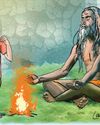
Gadai and the Monks
A fictional narrative based on incidents from the childhood of Sri Ramakrishna.

Chintayo momo maanosho Hori...
Sri Ramakrishna loved songs. There probably was no normal day when he did not sing some songs.
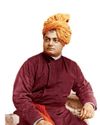
The Vedanta Vaccine
The world is still struggling under the impact of the pandemic due to Covid-19 for the last three years.
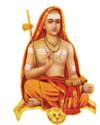
Chandrakirti's Chariot: Self in Madhyamaka Buddhism and Advaita Vedanta
The goal in Advaita Vedanta is the cessation of suffering and the attainment of true fulfillment. Suffering, according to this school, is due to ignorance of the true nature of the self and consequent erroneous identification with the body-mind.
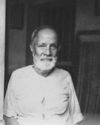
Reminiscences of Sargachhi
Question: यद्यदाचरतत श्रेष्ठसतत्तदरेवरेतरो जनिः। ‘Whatever a superior person does, others do the same thing!’ (Gita 3:21) – What does this statement mean?
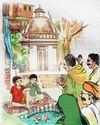
THE AUTUMN FESTIVAL
A fictional narrative based on incidents from the childhood of Sri Ramakrishna.
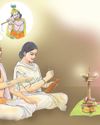
Bards of Guruvayur: Vilwamangalam II
Saints of India
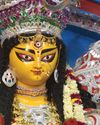
In the Universal Mother’s Divine Playground
Swami Vivekananda never taught the worship of Mother Kali. In a letter to Mary Hale he writes, “Kali worship is not a necessary step in any religion.
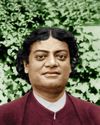
Swami Vivekananda: A Sportsman Par Excellence
In various books and articles, Swami Vivekananda has been called a spiritual leader, a prophet, a patriot, a social reformer, a philosopher, a yogi, a writer, an orator, an educationist, a musician, and so on.